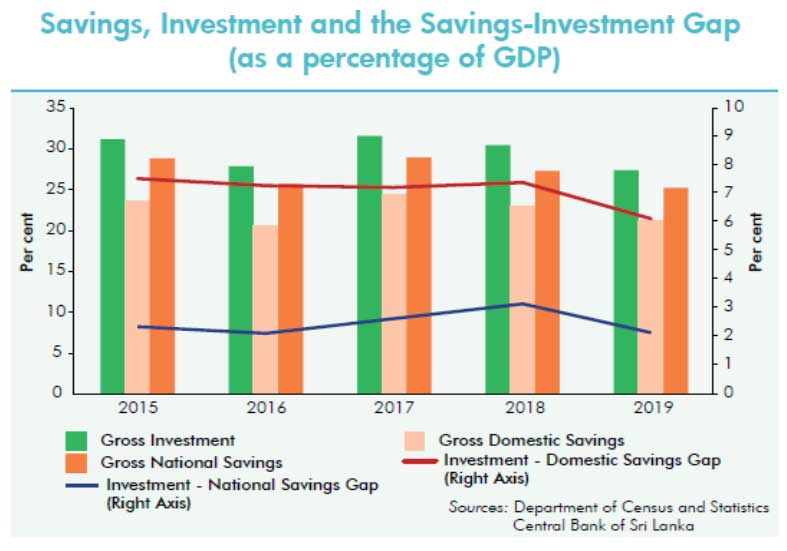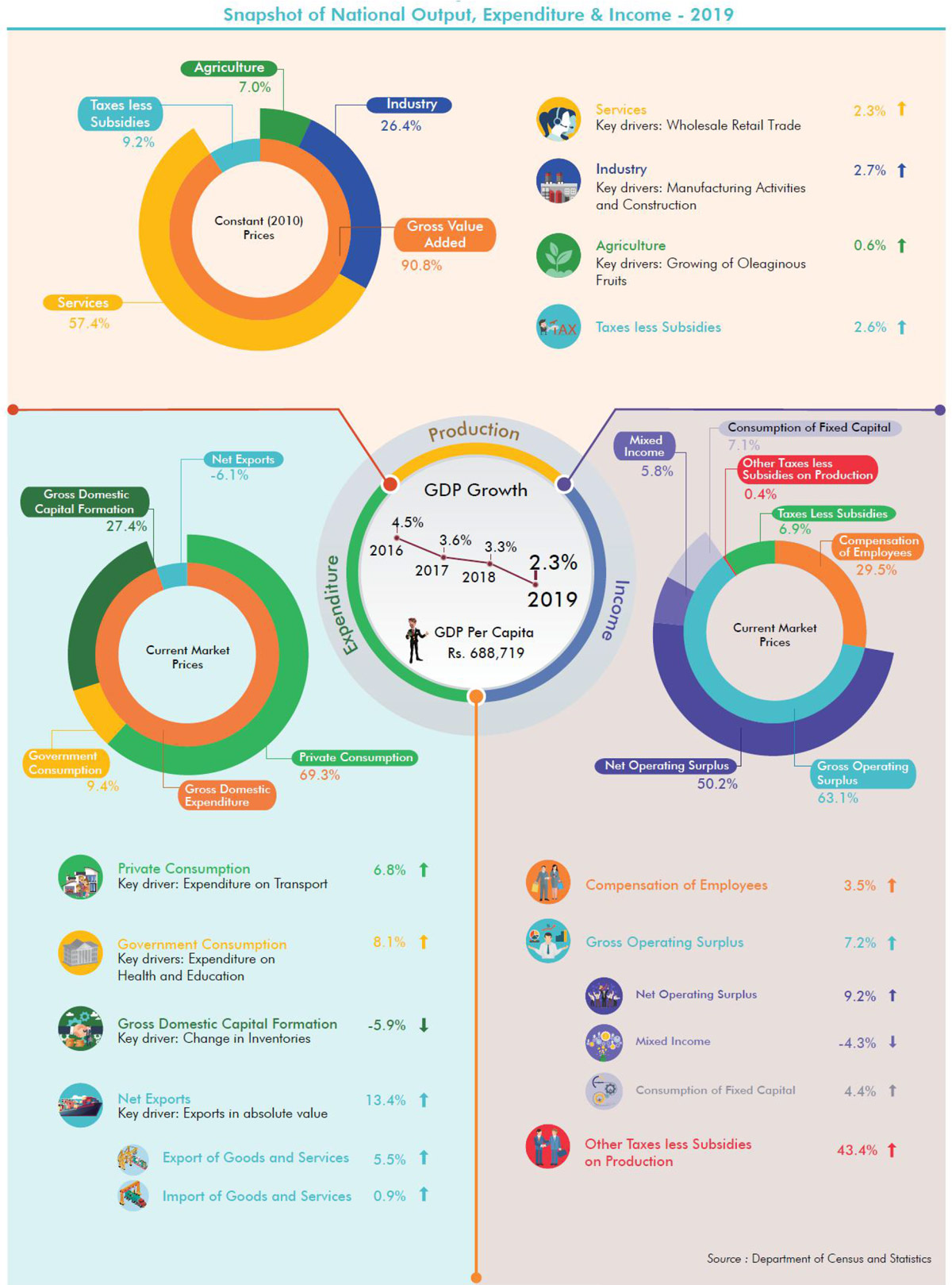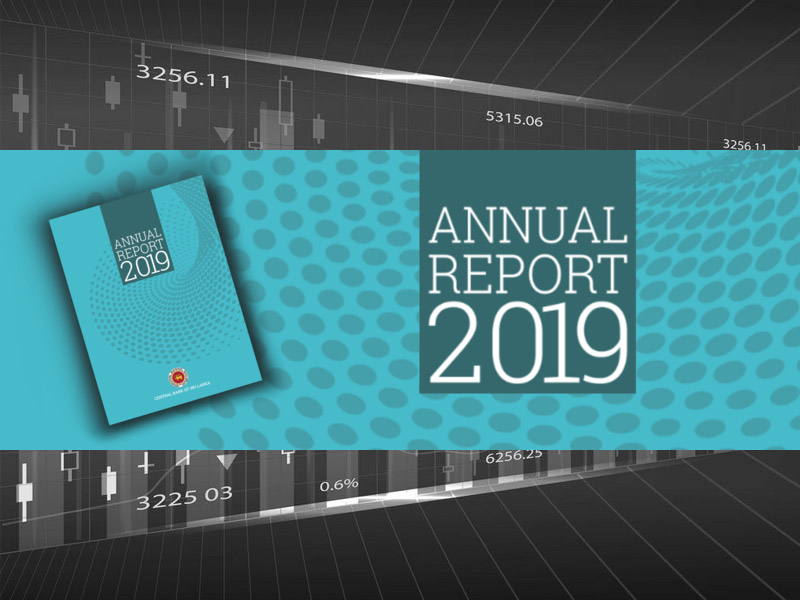
In terms of Section 35 of the Monetary Law Act No. 58 of 1949, the seventieth Annual Report of the Monetary Board of the Central Bank of Sri Lanka was presented to Hon. Mahinda Rajapaksa, the Prime Minister and the Minister of Finance, Economic and Policy Development, by Deshamanya Professor W.D.Lakshman, the Governor of the Central Bank of Sri Lanka.
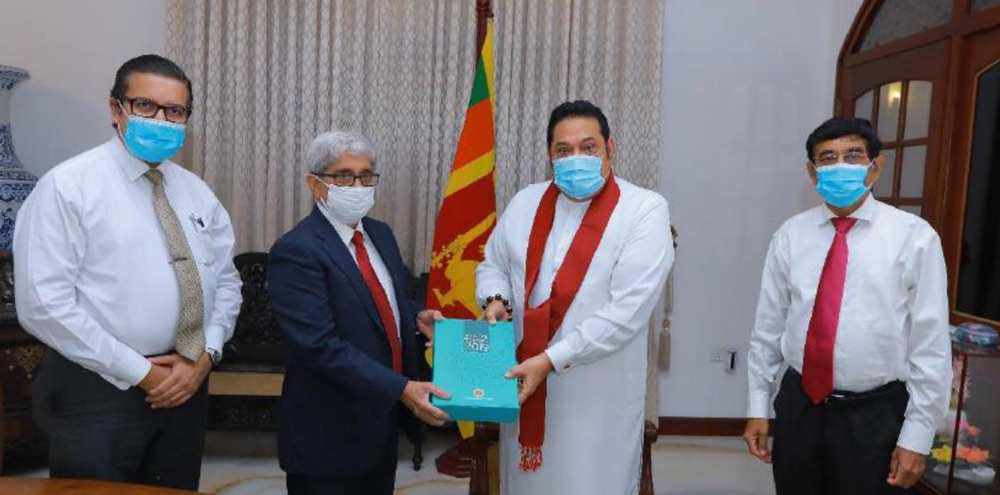
A summary of the performance of the Sri Lankan economy in 2019 as reflected in the Annual Report is given below:
Overview
During the year 2019, Sri Lanka’s dismal performance continued in terms of real economic growth, although macroeconomic stabilisation measures helped correct the external sector imbalances to some extent, while inflation pressures remained muted on average. The Easter Sunday attacks had a severe impact on the tourism sector, and their adverse spillover effects were felt across the economy, worsening the sluggish growth of the economy and further dampening business confidence. Policy measures aimed at reducing pressures on the balance of payments (BOP) and the exchange rate continued in 2019, which together with steps taken to revive the economy, contributed to notable slippages in the fiscal sector. Subdued demand conditions allowed the continuation of low inflation during the year, although extreme weather conditions and resultant disruptions to domestic food supplies caused some volatility in consumer prices. Growth of credit to the private sector decelerated sharply, driven by subdued economic activity and weak business confidence, affecting the performance of the financial sector. Considering the need to support economic activity amidst muted inflation, well anchored inflation expectations and diminished pressures in the external sector, the Central Bank adopted an accommodative monetary policy stance, and took steps to expedite the transmission of monetary policy measures to the economy through regulatory action aimed at reducing market interest rates.
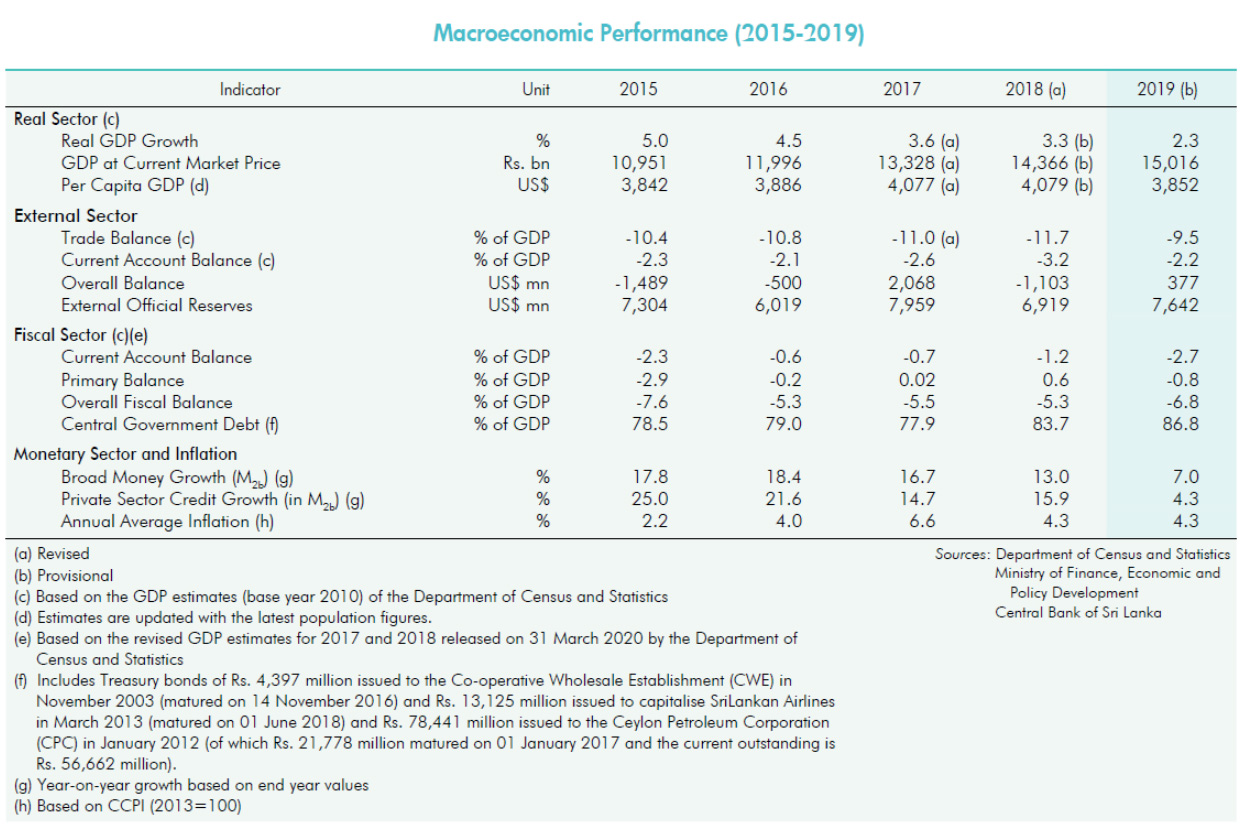
Macroeconomic Outlook
As domestic economic activity started to show early responses to the policy measures taken to revive the economy and improving business sentiments at the beginning of the year 2020, the outbreak of the COVID-19 pandemic, the containment measures adopted by all countries including Sri Lanka, and the resultant projected contraction in the global economy, triggered further uncertainties regarding the country’s economic performance in 2020. In the near term, the economy is likely to be impacted severely in terms of its growth, fiscal, external, and financial sector performance, while causing hardships to all stakeholders of the economy. The monetary policy space in terms of the low inflation environment, and the banking sector space created by the maintenance of capital and liquidity buffers above industry norms, enabled the Central Bank to support the efforts of the government to ease the burden on businesses as well as individuals. Despite the temporary setback posed by the pandemic, appropriate growth supportive reforms to address longstanding structural issues and enhance domestic production, improve export orientation, attract foreign direct investment (FDI), facilitate innovation, improve factor productivity and efficiency, and improve policy buffers, if implemented without delay, would enable Sri Lanka to realise the desired outcome of achieving sustained and equitable economic growth and becoming a prosperous nation in the period ahead.
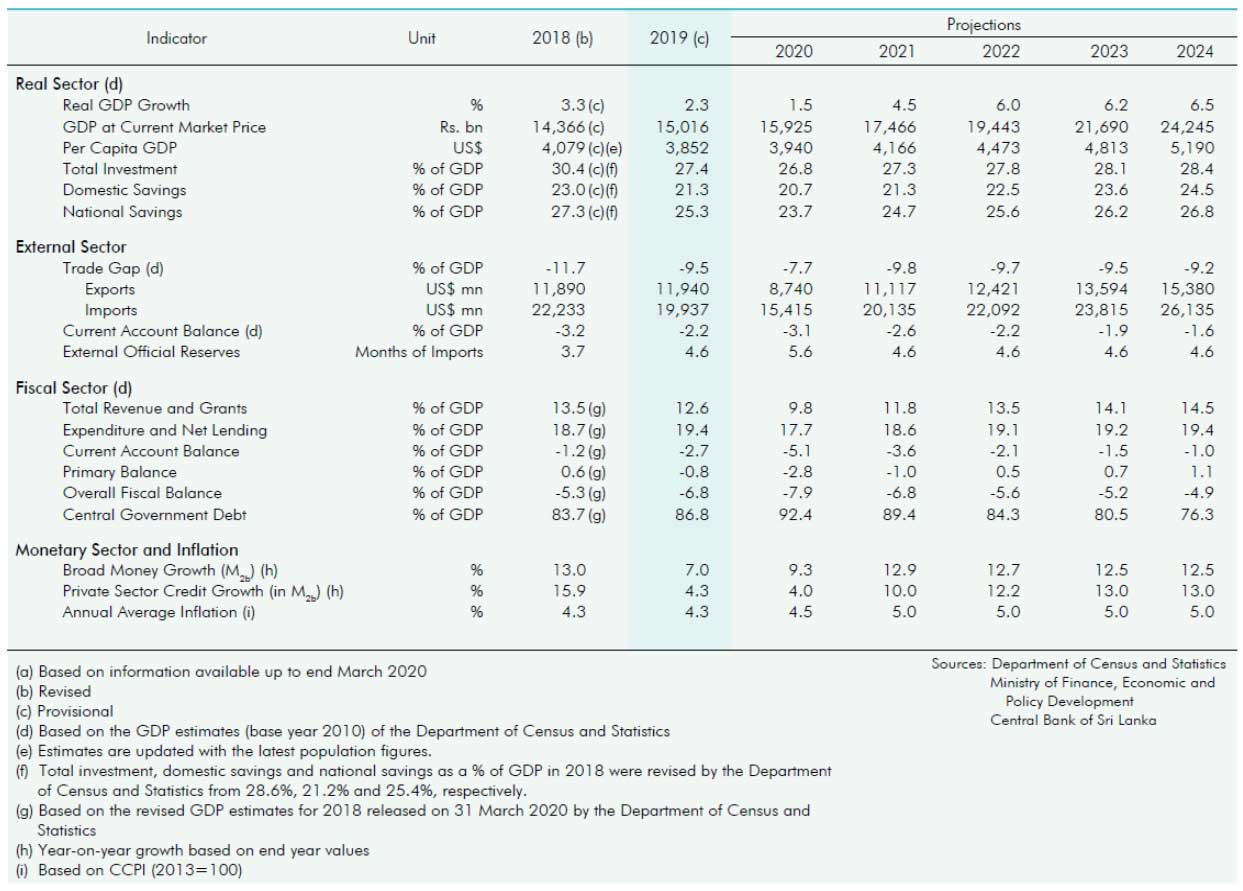
Sectoral Developments
Real Sector Developments
The Sri Lankan economy recorded a subdued growth of 2.3 per cent in 2019, compared to the growth of 3.3 per cent in 2018, as per the provisional estimates of GDP of the Department of Census and Statistics (DCS). All major sectors of the economy recorded positive, but modest growth rates.
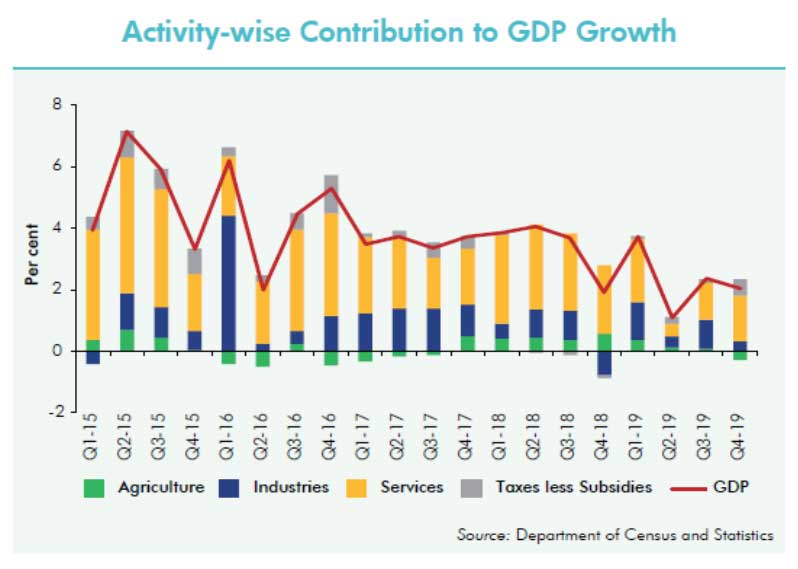
According to GDP estimates based on the expenditure approach, growth in 2019 was driven by consumption growth and the improvement in the external balance of goods and services.
